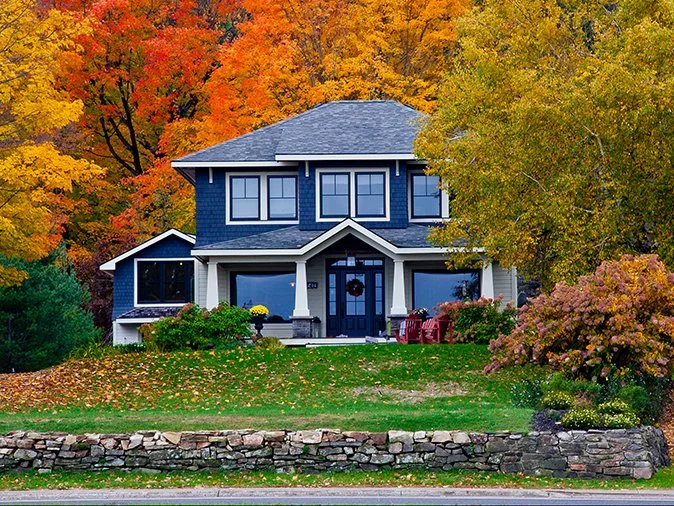Fall Pest Problem Q&A For Maine Homeowners
There’s something special about that first cool, crisp fall day that most Mainers look forward to. It truly is a wonderful time to call the Pine Tree state home and while the fall foliage is fantastic and the apple picking is on point, it has its drawbacks. It’s also the time of year when many insects and a couple of rodents start looking for shelter and food sources for the colder months. With that in mind, our locally owned and operated pest control company is going to use this time to answer a few of the more commonly asked questions about fall pest problems.
What pests should I be concerned about during the fall?
Mainers often wonder which pests are most active during the fall months and the answer is quite a few. Common fall pests include, but are not limited to:
For more information on these and other common Maine pests, please visit our pest library.
Why do pests become more active in the fall?
It’s not necessarily that pests become more active in fall, but rather they’re more actively looking for a place to hide out when the weather grows colder. They might also be searching for food to sustain them through the winter, which can lead them into homes.
How can I prevent pests from entering my home in the fall?
To prevent your home from being infested with bugs and rodents, you’ll need to spend some time pest-proofing it. This includes:
Sealing cracks, gaps, and other potential entry points on the exterior
Installing door sweeps
Repairing holes in the roof or replacing missing shingles
Cleaning out clogged gutters
Moving firewood away from the house and up off the ground
Trimming back tree limbs that are touching the roof
Repairing leaks and addressing moisture problems
Clearing away leaves, branches, and other organic debris from the yard and especially anything that is close to the foundation
Repairing or replacing window screens if you keep your windows open late into the fall
Decluttering garage, closets, and other storage areas to eliminate potential hiding spots
What rooms are more vulnerable to fall pest infestations?
Certain areas, such as attics, basements, and crawl spaces, are susceptible to pest problems during the fall and homeowners should make sure they are well-sealed. Of course, pest problems can happen in any part of the home, so don’t be so hypervigilant in those areas that you miss insects or rodents in other rooms.
What can I do to keep rodents out of my home as the weather gets cooler?
The pest-proofing tips we listed above also apply to rodents. Remember they can squeeze through some wicked tight spots in order to gain access to Maine homes.
If you’re thinking about setting some mouse traps, keep in mind that they act as a Band-Aid and not a solution. You’re simply trying to stem the tide of rodents entering not addressing how they get inside in the first place. Also, many times traps are set up in the wrong places using the wrong bait.
How can I prevent spiders from taking over my home in the fall?
Spiders often move indoors looking for food. The best way to keep them out of your home is to make sure other insects (i.e., their food) aren’t occupying it.
When should I consider calling a professional pest control service for fall pest issues?
The best time to call a pest control company is at the first sign of pest problem. Don’t wait until bugs are crawling all over, you’ve found mouse poop in the pantry, or are hearing scurrying in the walls.
Contact Advanced Pest Solutions for relief from pests this fall and all year-round
Here at Advanced Pest Solutions, we offer ongoing home pest control services in Rockland, Lewiston, and Gardiner as well as throughout central and coastal Maine that take care of house-infesting insects and rodents, no matter the season. To find out how we protect homes from fall pests, please reach out!

